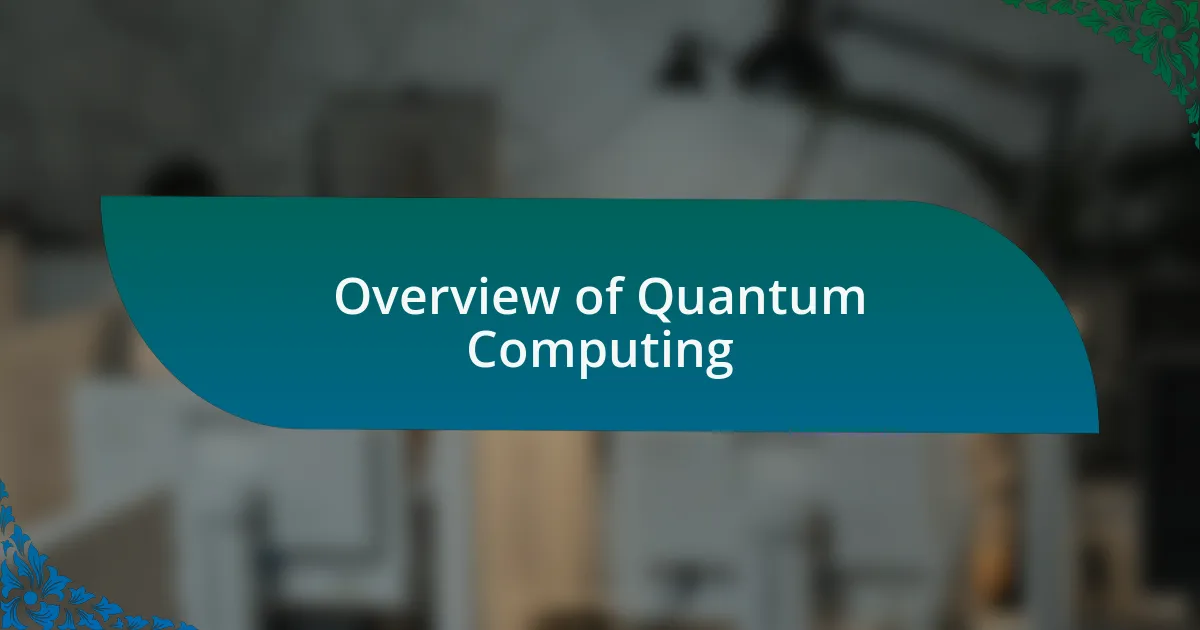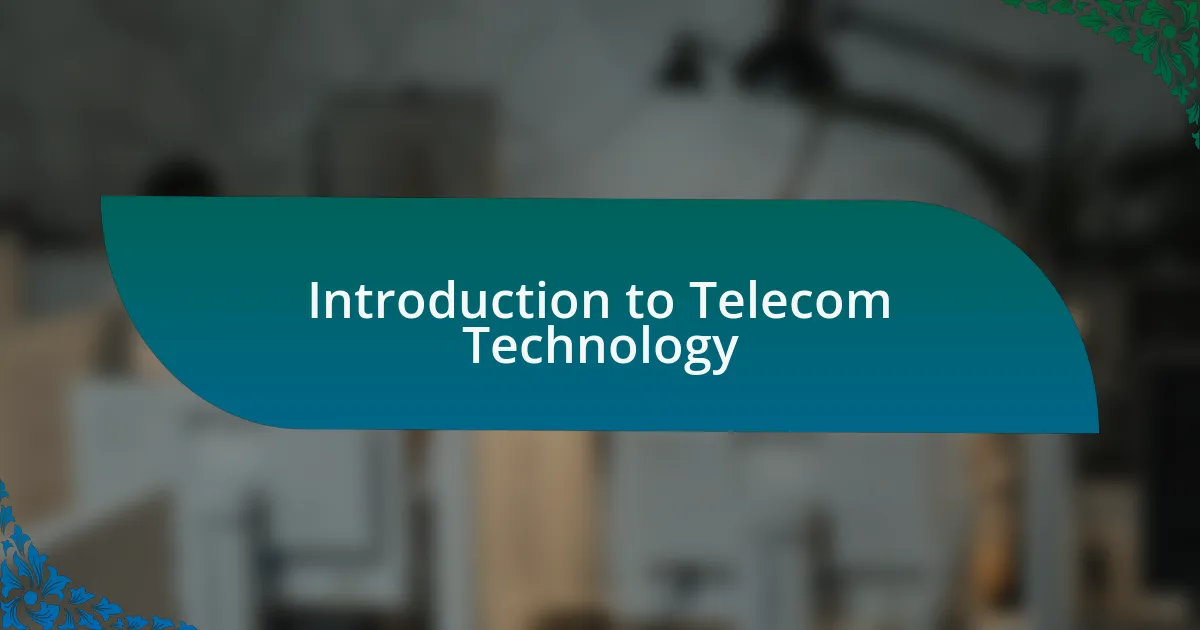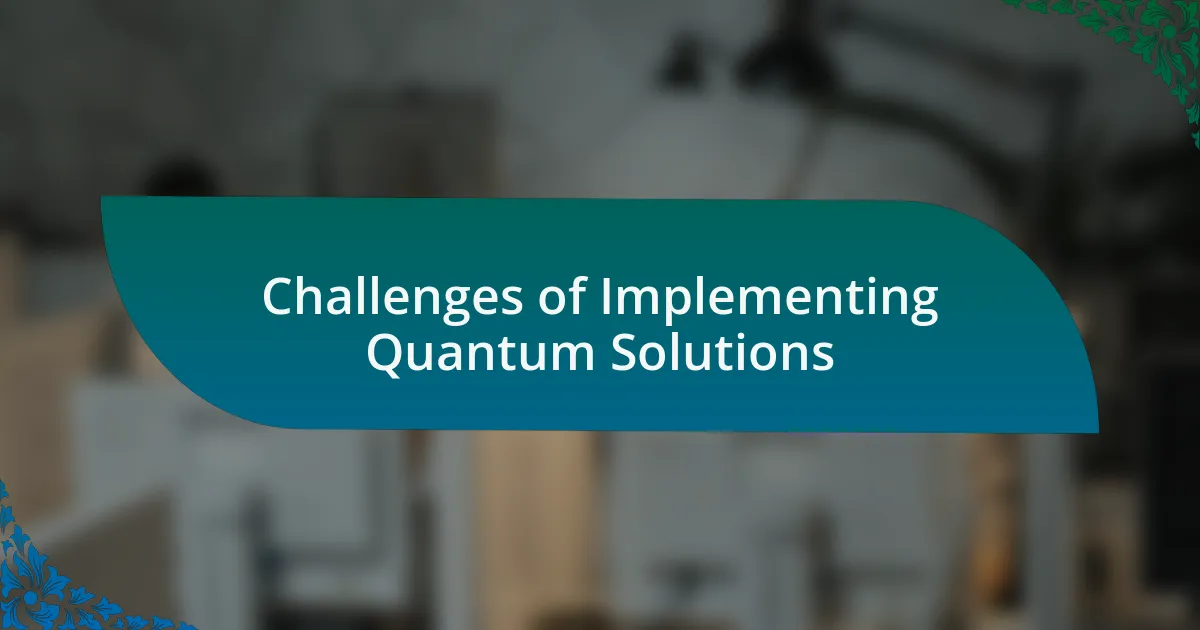Key takeaways:
- Quantum computing utilizes qubits for enhanced processing power, enabling faster solutions for complex problems like drug discovery.
- Telecom technology is essential for global connectivity, influencing communication and critical sectors such as healthcare and finance.
- Challenges in implementing quantum solutions include integrating complex algorithms with existing systems and a talent shortage in the field.
- Security concerns arise as quantum computing could undermine current encryption methods, necessitating the development of new security frameworks.

Overview of Quantum Computing
Quantum computing harnesses the principles of quantum mechanics to process information in ways that traditional computers cannot. This emerging field uses quantum bits, or qubits, which can exist in multiple states simultaneously, allowing for immense processing power. Have you ever thought about how complex problems—like simulating molecules for drug discovery—could be tackled much faster than we can today?
As I dive deeper into this field, I often find myself amazed by its potential to revolutionize industries. For instance, its application in optimizing network performance in telecom could lead to more efficient data routing and improved signal processing. Just imagine a telecom network that adapts in real-time, significantly enhancing user experience!
One aspect that fascinates me is the idea of quantum entanglement, where qubits become interlinked and the state of one can instantly affect another, regardless of distance. This could redefine secure communications, making it nearly impossible for hackers to intercept data. Could we be on the brink of a new era in safeguarding our digital information?

Introduction to Telecom Technology
Telecom technology serves as the backbone of our interconnected world, shaping how we communicate and share information. I remember the first time I experienced the seamless connectivity provided by a 5G network; it felt like stepping into the future. Every phone call, every video chat, and every online game relies on this intricate system, which includes everything from satellites to fiber optics.
As I explore the evolution of telecom technologies, I’m struck by how they continually transform our interactions. Take a moment to consider the sheer volume of data transmitted daily—it’s staggering! The innovation in this field not only influences personal communication but also powers critical sectors such as healthcare and finance. We are no longer limited by geography; information flows freely, connecting people across vast distances.
The rise of innovations in telecom also raises intriguing questions about the future. How will emerging technologies continue to reshape our understanding of connectivity? From virtual reality experiences to the potential of quantum computing in enhancing network efficiencies, the possibilities seem endless. There’s something profoundly exciting about being part of an industry that’s always on the brink of the next big breakthrough.

Challenges of Implementing Quantum Solutions
Implementing quantum solutions in telecom is not without its hurdles. One major challenge I’ve encountered in discussions with industry peers is the complexity of quantum algorithms and their integration into existing infrastructures. It often feels like trying to fit a square peg into a round hole—how can we ensure these advanced algorithms can function seamlessly with traditional systems?
Another obstacle lies in the need for specialized skill sets. As I’ve delved into this realm, I’ve realized that there’s a significant talent gap. The scarcity of professionals who truly understand quantum mechanics and quantum programming can slow down innovation. It raises an interesting question: How can we inspire the next generation of engineers and researchers to bridge this gap and take on the quantum challenge?
Security concerns also loom large. The implications of quantum computing on encryption methods are profound. I often wonder about the future of data protection; will our current encryption techniques stand the test against quantum capabilities? The stakes are high, and developing robust security frameworks that can withstand this new wave of technology is a pressing necessity for the telecom sector.